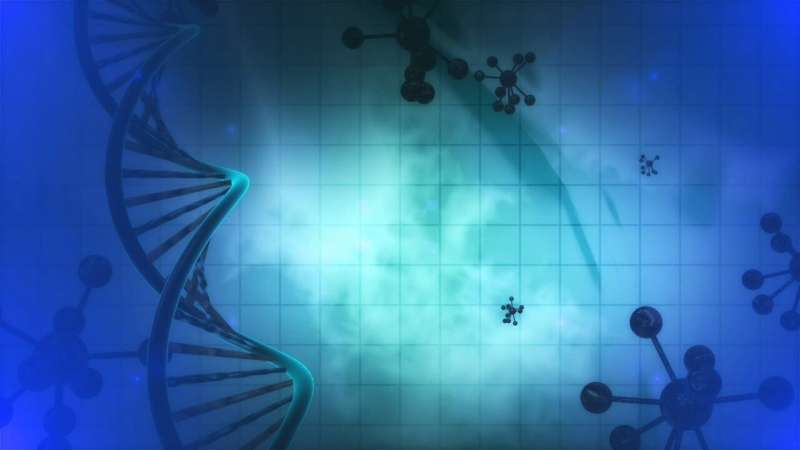Credit: CC0 Public Domain
More than 750,000 people in the United States have dilated cardiomyopathy, a potentially life-threatening condition in which the heart's main pumping chamber, the left ventricle, enlarges and grows increasingly weak. Research has shown that one in 10 people with this condition were born with a mutation in the TTN (titin) gene, but—until now—it has been unclear whether everyone with these mutations will inevitably develop dilated cardiomyopathy. In a new study published today in Circulation, researchers at Penn Medicine and Geisinger reviewed gene sequences of more than 70,000 people, and found that 95 percent of patients who had the genetic mutations did not have heart disease or signs of cardiac decline. However, they did find subtle differences in the hearts ability to pump efficiently, compared to those without the mutation.
"It's clear that these gene mutations have a real effect on one's heart, and yet, there are a lot of people carrying the deleterious mutations right now who are fine," said the study's corresponding author Zoltan Arany, MD, Ph.D., a professor of Cardiovascular Medicine in the Perelman School of Medicine at the University of Pennsylvania. "While our study moves us one step closer to being able to predict, based on one's genes, who will get this disease, there is still a difference between these two populations that we don't yet understand. The next step will be to identify the specific variable causing some of these patients to get heart disease."
The TTN gene, which codes the body's largest protein, acts as a spring inside the heart muscle and helps limit how much it can be stretched. Mutations in this gene—which affect about 1 percent of the global population—are commonly found in people with dilated cardiomyopathy, when cardiologists order a genetic test to determine if the disease stems from a genetic variant.
In this study, researchers sought to reverse the process, and determine if pinpointing the mutations could predict whether people carrying the faulty genes would develop the disease. To do so, researchers reviewed the exome sequence data of 61,040 from the Geisinger MyCode Community Health Initiative and 10,273 from the Penn Medicine BioBank to identify individuals with the gene mutations. From there, they examined corresponding information, including diagnoses, imaging and test results—available via linked electronic health records—to determine whether the patients had heart disease or showed signs of declined cardiac function.
Researchers found that patients with cardiomyopathy who have the mutations fare worse, even on treatment, than patients with the condition who don't have a mutation. The finding, researchers say, underscores the value of ordering a genetic test for patients who have been diagnosed with cardiomyopathy. That said, Arany cautions against patients who don't have heart disease undergoing genetic tests for titin variants.
"For now, I would not recommend people get genetic testing for the titin variants because that will just make them anxious for something that's highly unlikely," Arany said. "That may change, for example, if we were to find that the combination of a TTN gene mutation and a mutation in another gene causes people to get the disease, then we'd recommend genetic testing for both of the variants. But right now we still don't know enough."
Journal information: Circulation






















